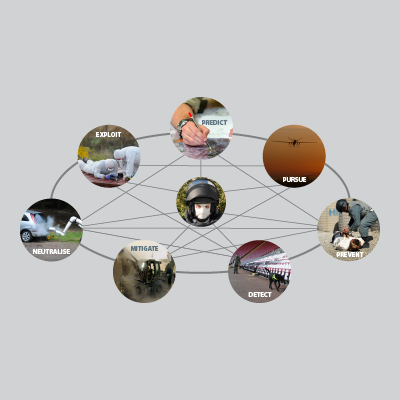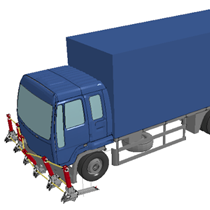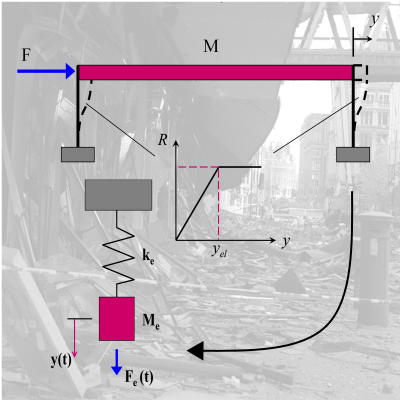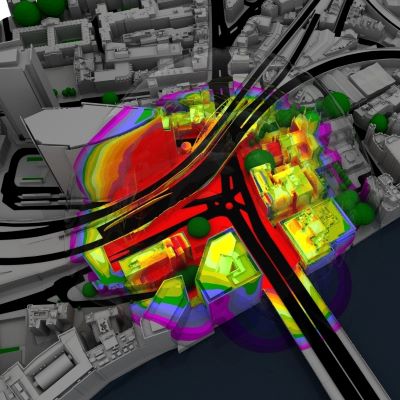The Steel Construction Institute (SCI) is developing a bespoke software – EMBlast – for predicting accurately, quickly and simplistically the loading on buildings caused by energetic materials.
The methodology of EMBlast is based on the Low-Altitude Multiple Burst (LAMB) shock combination rules, complemented with a large number of experimental tests and numerical analyses. LAMB is a semi-empirical approach, initially developed for nuclear detonations, that provides a reasonably accurate method for combining incident and reflected airblast shocks from high-explosive detonations of energetic materials. Experimental results and the numerical simulations assist in validating LAMB predictions and assist in expanding the range over which the LAMB method can be applied. Data is key to developing, extending and validating the software. Therefore, a collaboration has been established with the University of Sheffield, where its test site at Buxton will be used to perform medium-scale explosion tests.
This seminar will introduce the methodology behind EMBlast and present its latest developments. Namely, current research is focused on extending the range to the far-field with scaled distances > 40 m/kg3, and implementing the Hudson approach for clearing in the near-field.
The Terrorism Risk Assessment, Modelling and Mitigation Seminar Series (TRAMMSS) is a virtual seminar series focused on technical topics related to terrorism risk assessment and modelling, including blast modelling and response; IEDs; vehicles as weapons; CBRN; big data for risk assessment, security and screening; and associated mitigation measures.
Speakers
Dr Socrates Angelides is a Research Associate at the Energetic Materials Blast Information Group (EMBIG) of the Steel Construction Institute (SCI) in the UK. Socrates is currently involved in the development of EMBlast, a software for predicting blast loads on buildings from energetic materials. This project is a Knowledge Transfer Partnership (KTP) with the Blast and Impact research group of the University of Sheffield, supported by Innovate UK. Socrates has a background in Civil Engineering (MEng at Imperial College) and Future Infrastructure and Built Environment (MRes at the University of Cambridge). He recently completed his PhD at the University of Cambridge, as part of the Future Infrastructure and Built Environment (FIBE) Centre for Doctoral Training (CDT). His PhD focused on developing analytical models for the post-fracture blast response of laminated glass. He has also worked in industry for three years at DNVGL in London, as a structural engineer assessing offshore steel structures for the oil and gas industry.
Location and travel details
The seminar will take place remotely online.
Who should attend
This seminar is open to guests from outside Cranfield, who may work in academia, research or industry. Due to the potentially sensitive nature of this seminar series, guests should be able to show that they are affiliated with an appropriate bona fide organisation.
Cost
The event is free of charge, but participants must register for the TRAMMSS mailing list in advance.How to register
To attend this seminar, you must register for the TRAMMSS mailing list via the online form. Further information on the TRAMMSS community can be found on the main website.









